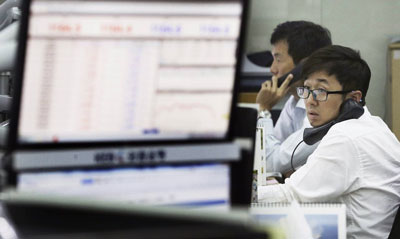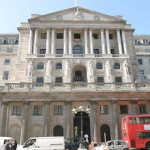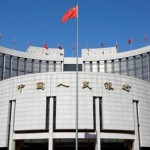Forex Scandal Drives Shift to Algo Trading

Banks are increasingly turning to computer programs to carry out foreign exchange trades
After paying billions in fines to settle allegations that traders tried to rig a key currency benchmark, banks are increasingly turning to computer programs to carry out foreign exchange trades.
In an industry traditionally dominated by human traders placing orders by phone, the rise of trading algorithms has accelerated after a global probe into currency trading. Behind the shift is banks’ desire to shield themselves from any future misconduct by traders, and reduce the risk involved in handling some currency trades, according to bankers.
“The share of algo execution by banks has gone up dramatically,” said Guy Debelle,assistant governor of the Reserve Bank of Australia, who is leading regulatory efforts to implement stricter rules of behavior for the industry. The move toward automation has sped up as banks implemented new guidelines set last year by the Financial Stability Board to clean up the scandal-bruised reputation of the industry, he said.
Algorithmic trading will account for about a third of total currencies trading in 2016, according to analysis of trading data from the largest interdealer brokers by consultancy GreySpark Partners. The use of algos in currency trading was virtually nonexistent a decade ago, GreySpark said. Its growth has outstripped that of trading by phone, and trading on non-automated electronic platforms that still require human traders to process orders.
A year ago, algo orders placed by fund managers and other investors accounted for no more than 10-15% of total trading volumes, according to Javier Paz, an analyst at research firm Aite Group.
“My sense is that this share may have increased sharply because of government-mandated oversight,” Mr. Paz said.
The shift to algorithms has most rapid for trades based on the so-called ‘fix’, a rate set every day and used by large asset managers as a benchmark for currency conversions.
The fix has been at the center of the international investigation into currency manipulation which began in 2013, which has seen around half a dozen of the world’s largest currency dealing banks pay more than $10 billion in fines to U.S. and U.K. authorities. More than 30 senior traders based mainly in London or New York have been fired or suspended as part of the investigation.

Algorithms are now used to carry out roughly 90% of orders placed at the daily fix rate, compared with about 5% before the investigation shed light on traders’ misbehavior, according to the head of trading of one of the largest currency trading banks. Another senior trader at a different bank agreed algo use has surged, particularly in these fix trades.
“There is a dramatic change in how most banks process fix orders,” said Stephane Malrait, global head of e-commerce at ING financial markets.
Asset managers frequently place large foreign-exchange orders ahead of the daily fix to be carried out at that day’s fix rate. In the past, banks took the risk of such trades onto their own books. Traders executed them over the phone, and then the client was charged the benchmark rate set at 4 p.m. London time each day. The difference between the ‘fix’ and the rates obtained by the traders was profit or loss for the bank.
The currency probe found traders were colluding to push the benchmark rate up or down to benefit their own trades, by discussing confidential client orders with traders at rival banks in online chat rooms.
Now, banks are increasingly acting as intermediaries by feeding client orders to trading platforms, without shouldering the risk themselves. Execution is left to algorithms, which continuously scan the market for the best rate available for each currency at any point of time. In return for giving clients access to their advanced trading software, banks charge a fixed fee.
“Banks are going from trying to make a super big profit [in trading around the fix], to just providing a service,” said Jim Cochrane, director of execution for foreign exchange at broker ITG.
Source: WSJ – Forex Scandal Drives Shift to Algo Trading





























